Waylon Jennings
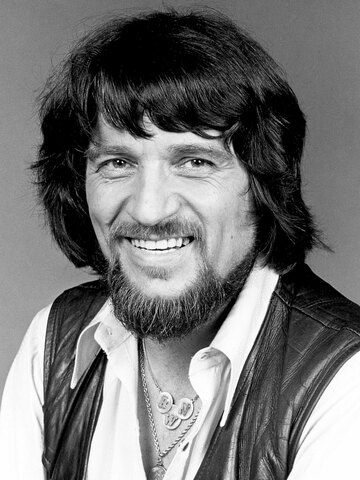
Singer • Songwriter • Actor
Birth Date: June 15, 1937
Death Date: February 13, 2002 — 64 years old
Birth Place: Littlefield, Texas
Bands: The Highwaymen
One of country music's biggest stars in the 1970s and 1980s, singer-songwriter Waylon Jennings was a key figure in the outlaw country movement, which sought to break away from the polished Nashville sound to embrace a free-wheeling, counterculture sound that influenced generations of country and rock musicians.
He began his career in the early 1950s, befriending fellow Texan Buddy Holly and narrowly missing the airplane crash that claimed the rock pioneer's life in 1959. Jennings struggled to gain a foothold in music during the 1960s, but gradually built his career on the strength of country-pop singles like "Only Daddy That'll Walk the Line." He broke free of the restrictive Nashville scene in the early '70s, adopting the hard rocking, hard-partying outlaw country sound personified by Willie Nelson, Tompall Glaser, and Jennings' wife, Jessi Colter. He enjoyed his greatest success in the ensuing decade, scoring No. 1 hits with "This Time" "I'm a Ramblin' Man" and the compilation album Wanted! The Outlaws, which reached the top of the pop album charts in 1976.
Jennings' fiery songs and spirit inspired dozens of equally independent-minded musicians, from Dwight Yoakam and Travis Tritt to Kid Rock and his own son, Shooter Jennings. In doing so, he confirmed his status as one of country's greatest figures.
Born Wayland Arnold Jennings in Littlefield, TX on June 15, 1937, he was the son of William and Lorena Jennings, who were complimented by a visiting Baptist preacher for naming their son after Wayland Baptist University. The Jennings, having no interest in connecting their offspring to the school, soon changed his name to Waylon. He learned the guitar from his mother at the age of eight, and soon pursued it vigorously in order to avoid having to work in the cotton fields. By the time he was 12 years old, Jennings was leading his own band, The Texas Longhorns, which performed a half-hour music program at KVOW, a local radio station, where he also served as a disc jockey. He left school in the 10th grade to follow his dreams of music stardom, which took him to Lubbock, TX in 1954. There, he landed a job at KLLL, where he befriended a fellow aspiring musician, Buddy Holly, who oversaw his first single, "Jolie Blon." It found few listeners upon its release in 1959, and Jennings soon took over as bassist for Holly's band, the Crickets, while on the "Winter Dance Party" tour with Ritchie Valens and J.P. "The Big Bopper" Richardson.
After a show in Clear Lake, IA on Feb. 2, 1959, Holly chartered a plan to take him and several members of the tour to the next date in Fargo, ND. A coin toss determined that Holly, Valens, and Richardson would take the plane, while Jennings and guitarist Tommy Allsup would endure a long, cold bus ride. Holly's parting words to Jennings were, "I hope your ol' bus freezes up!" to which Jennings good-naturedly fired back a riposte wishing that Holly's plane would crash. Jennings' words proved apocryphal; Holly's plane plunged into a field outside Clear Lake on the morning of Feb. 3, killing all on board. The event would come to haunt Jennings, who felt personally responsible for the death of his friend. He eventually returned to Lubbock to work as a DJ while sorting out his grief over the accident.
In 1961, Jennings moved to Phoenix, AZ, where he fronted a rockabilly act called the Waylors. The band developed a local following that led to a contract with the independent record label, Trend. However, none of their singles made an impact on the charts, and Jennings soon left performing for music production. He relocated to Los Angeles in 1963, where he was signed to Herb Alpert's A&M Records. There, too, he struggled to find an audience, scoring only minor regional hits with his country material. Alpert pressed him into moving into a pop vein, but the resulting single, "Sing the Girl a Song, Bill," was a dismal failure. He was soon dropped from the A&M roster, but found a new patron in singer Bobby Bare, who had covered two of his songs, "Four Strong Winds" and "Just to Satisfy You." Bare recommended that Jennings move to Nashville in order to work with RCA producer Chet Atkins. He soon moved in with ex-Sun Records singer Johnny Cash, who became a lifelong friend. Cash also introduced Jennings to amphetamines, which kicked off a drug habit that would plague him for the next few decades.
Jennings' RCA debut single, "That's the Chance I'll Have To Take," became a minor hit in 1965. After his sophomore release, "Stop the World (And Let Me Off)" broke into the country Top 40, he became a regular presence in the Top 10 with hits like "Walk On Out of My Mind" and "Only Daddy That'll Walk the Line." In 1966, he made an auspicious debut as an actor in the low-budget music business drama "Nashville Rebel," as an aspiring singer whose career was nearly undone by unscrupulous management. By 1968, he was pushing his sound away from the polished "Countrypolitan" style so prevalent to Nashville at the time and towards a purer country sound with a harder edge. In doing so, he helped to foment the roots of the anti-Nashville-establishment movement known as outlaw country. His first efforts in this direction were the Lee Hazelwod-produced Singer of Sad Songs (1970) and its 1972 follow-up, Ladies Love Outlaws, which found Jennings borrowing liberally from rock-n-roll and the singer-songwriter movement. Though modest hits, they put his music in direct conflict with the Nashville way of doing business, and Jennings began to chafe under their restrictive policies.
He was persuaded to wrest control over his music and image by his friend Willie Nelson, a former Nashville singer-songwriter who had thrown over his well-groomed look in favor of a long-haired, counterculture-meets-the-Old-West look cultivated by time in the eclectic, free-thinking city of Austin, TX. With the help of Nelson's manager, Neil Reshen, Jennings renegotiated a deal with RCA that gave him not only greater financial gains but also the artistic control he craved. He soon adopted a look similar to Nelson's, earmarked by a long black beard and black hat, and released Honky Tonk Heroes (1973), his first record under his new contract. The album's tough sound, bolstered by ace session musicians and a lineup of songs written largely by up-and-coming writer Billy Joe Shaver, set the tone for his 1970s releases, which soon began generating hits, including the chart-topping "This Time" and "I'm a Ramblin' Man." By 1975, the year he released his signature tune, "Are You Sure Hank Done it this Way," he had been named Male Vocalist of the Year by the Country Music Association.
The peak of Jennings' success came the following year, with Wanted! The Outlaws (1976), a compilation of his previously released material, as well as songs by Nelson, songwriter Tompall Glaser and Jennings' wife, singer Jessi Colter. The record reached the No. 1 spot on the Billboard pop albums charts, minting Jennings as a bona fide mainstream superstar. He would remain one of country's most popular figures for the remainder of the decade, mining gold from his multi-platinum collaboration with Nelson, Waylon & Willie (1978) and its Grammy-winning No. 1 single "Mammas Don't Let Your Babies Grow Up to Be Cowboys," as well as the singles "Luckenbach, Texas (Back to the Basics of Love)," "Amanda" and "I've Always Been Crazy." He also maintained a high profile among non-country audiences, most notably as the folksy narrator of the top-rated television series, "The Dukes of Hazzard" (CBS, 1979-1985), which provided him with another No. 1 hit with its classic theme song, "Good Ol' Boys."
But as Jennings scaled the heights of fame, he found himself in the grip of a powerful and expensive cocaine habit. Federal agents eventually arrested him in 1977 on conspiracy and possession charges, which he beat by disposing of the evidence in a recording studio bathroom while they obtained a search warrant. The incident was referenced in his single "Don't You Think This Outlaw Bit's Done Got Out of Hand?" which highlighted his growing disenchantment with the outlaw country label.
But his drug dependency worsened with the dawn of the 1980s, blossoming into a $1,500 a day habit that left him bankrupt and $2.5 million in debt. In 1984, he quit cocaine through a cold turkey detox, citing his desire to rebuild his relationship with his son, Waylon Albright, who went by the nickname of Shooter. He soon hit the road to rebuild his finances while spending less time on his recorded output. Jennings found sporadic success during the decade, most notably as a member of the supergroup the Highwaymen with Cash, Nelson, and Kris Kristofferson, which scored a No. 1 hit in 1985 with the single "Highwayman." He also returned to acting, appearing in the Sesame Street feature film "Follow that Bird" (1985) and a 1986 remake of "Stagecoach" (CBS) with Jennings in John Carradine's role as the ill-fated gambler and Nelson, Cash, Kristofferson, June Carter Cash, Jessi Colter, and David Allen Coe among its cast.
His solo records, however, began to lose much of their luster during the decade. He had left RCA for MCA in 1985, which generated a handful of hits, including the album Will the Wolf Survive, which rose to the top of the Country album charts in 1985. But the positive response dried up by the end of the decade, prompting a move to Epic in 1990. He reached the Top 10 one last time that year with the album The Eagle, after which he languished on the charts for the better part of the decade. But Jennings remained a huge draw on the concert circuit, despite worsening health issues, including heart bypass surgery in 1988. The rise of the alt-country movement, which took many of its cues from the outlaw country scene, sparked interest in Jennings' career, and like Cash and Nelson, he found himself playing for increasingly younger crowds, including the Lollapalooza festival in 1997. He enjoyed critical success in 1996 with Right for the Time, his first album for the independent label Justice Records, but the record failed to chart.
He quit touring at the end of the 1990s to spend time with his family, though remained active in the studio. In 1998, he teamed with fellow veterans Bobby Bare, Mel Tillis, and Jerry Reed to form The Old Dogs, which released a self-titled album comprised of songs by Shel Silverstein in 1998. The following year, he gathered together a number of his former backing musicians to form Waylon and the Waymore Blues Band, which toured in a limited capacity from 1999 through 2001. At the time, Jennings was suffering from a variety of ailments, including emphysema and severe diabetes, which resulted in the amputation of his left foot in 2001. That same year, he was inducted into the Country Music Hall of Fame, but was unable to attend the ceremony, sending his son, Buddy Dean Jennings, in his place. The following year, Jennings released his final album, Closing in on the Fire, shortly before his death from diabetic complications on Feb. 13, 2002. A slew of posthumous awards followed in 2006 and 2007, including the Cliffie Stone Pioneer Award from the Academy of Country Music and the Nashville Songwriters Festival's Lifetime Achievement Award. Jennings' son, Shooter, followed in his father's footsteps with his own country-rock and acting careers; in the latter capacity, he played his own father in the Oscar-winning "Walk the Line" (2005). By Paul Gaita
Credits

Waylon Jennings & The Waymore Blues Band: Medley: Amanda / A Couple More Years

Waylon Jennings: Wild Ones

The Highwaymen: Live - American Outlaws

Crook and Chase Presents: A Tribute to Hank Williams Sr.

Chet Atkins: Certified Guitar Player

Waylon Jennings: Only Daddy That'll Walk the Line

Nashville Rebel

Tom Sawyer

Family Guy

Family GuyStream
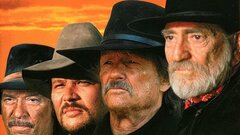
Outlaw JusticeStream
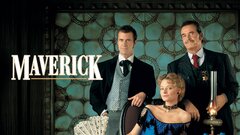
MaverickStream

Waylon Jennings: The Eagle
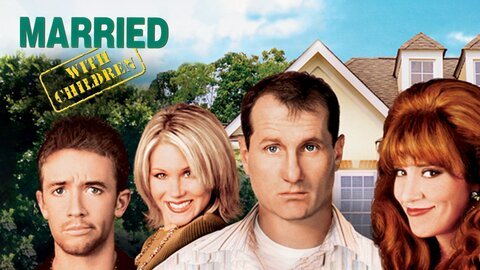
Married ... With ChildrenStream
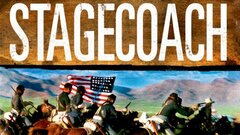
StagecoachStream
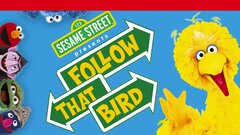
Follow That BirdStream
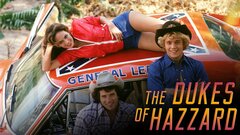
The Dukes of HazzardStream

The Dukes of HazzardStream

Willie Nelson's 4th of July Celebration

MacKintosh and T.J.

Moonrunners

Waylon Jennings: Rainy Day Woman 12 & 35

Waylon Jennings: I'm A Ramblin' Man




